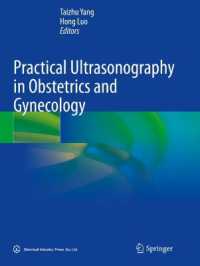- ホーム
- > 洋書
- > ドイツ書
- > Social Sciences, Jurisprudence & Economy
- > Education Science / Pedagogic
- > didactics, methodics, school education
Description
(Text)
The term 'sustainability' is on everyone's lips, but nevertheless we struggle to transpose the idea into our economic and social structures. This book aims to provide an overview of the relevant discourses, but also - and above all - a stimulus for fresh thinking, with new suggestions for the defence and further development of the concept of sustainable development. It addresses the position of humans in the global (eco)system, and it interprets and applies sustainability as a multi- and inter-disciplinary concept. It is concerned as much with problem analysis as with proposed solutions and with the necessary conditions for sustainable development. The Eberswalde University for Sustainable Development (EUSD) is committed to a comprehensive implementation of sustainability, in all its complexity, in teaching, research, knowledge transfer and operational practice. It was the first German university to develop and implement, in a wide-ranging participatory process involving all staff and students, a detailed programme of sustainable development, and is considered a pioneer in this regard among German higher education institutions. This textbook has grown out of a foundation course lecture on sustainable development at the Eberswalde University for Sustainable Development. The editors conceived the book from that starting point and developed and elaborated it with the help of many colleagues.
(Author portrait)
Pierre L. Ibisch ist habilitierter Biologe und nach langjähriger Tätigkeit in der Entwicklungszusammenarbeit seit 2004 Professor für Nature Conservation an der Hochschule für nachhaltige Entwicklung Eberswalde, wo er in Kooperation mit einem britischen Kollegen das Centre for Econics and Ecosystem Management leitet. Seit 2009 ist er Inhaber verschiedener Forschungsprofessuren (Biodiversität und Naturressourcenmanagement im globalen Wandel, bis 2015; Ökosystembasierte nachhaltige Entwicklung, seit 2015). Er ist Mitglied des Vorstands der Deutschen Umweltstiftung.Heike Molitor ist seit 2009 Professorin für Umweltbildung und Bildung für nachhaltige Entwicklung an der Hochschule für nachhaltige Entwicklung Eberswalde und Forschungsprofessorin (2018-2020). Sie war und ist Mitglied in diversen Beiräten (Beirat für nachhaltige Entwicklung des Landes Brandenburg 2010 bis 2014, Sachverständigenbeirat für Naturschutz und Landschaftspflege Berlin 2017-2021, Fachforum Hochschule des Weltaktionsprogramms Bildung für nachhaltige Entwicklung 2015-2019).Alexander Conrad ist seit 2014 Professor für Volkswirtschaftslehre, insbesondere nachhaltiges Regionalmanagement und Kommunalfinanzen, an der Hochschule für nachhaltige Entwicklung Eberswalde. Er leitet den Studiengang Regionalmanagement und hat seinen Forschungsschwerpunkt im Bereich nachhaltige Versorgungssysteme im ländlichen Raum.







